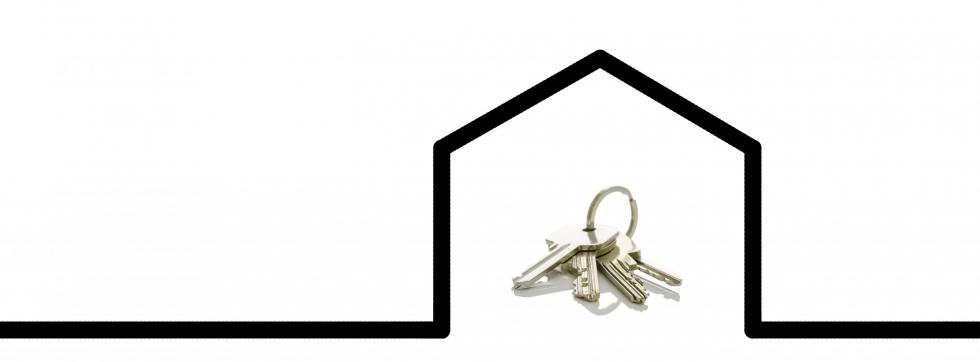Do you wonder if you are paying too much rent? And where can you get reliable and accurate information about renting issues in the Netherlands? Dafna Eccles from the !WOON answers your questions about renting.
A common concern of tenants is whether they are paying more rent than they actually should. Following are the things that you need to consider if you are asking yourself this question.
All-In Rent?
First of all, you need to assess how much basic rent you are paying. Your monthly advance payment might include additional housing costs such as water, utilities, internet connection, etc, and these costs should be clear. The basic rent is called kale huur and the additional costs are called servicekosten.
If your contract doesn’t clearly differentiate between the two it is considered an “all-in” rent price. These are illegal. If you are being charged “all-in” you can present your case to the Huurcommissie National Tenancy Law Tribunal. Unfortunately the Huurcommissie communicates in Dutch only so you might need a translator to assist you.
If the Huurcommissie agrees that your rent is indeed “all-in” they will calculate your maximum legal rent using a points system called puntensysteem. Your basic rent will be reduced to 55 % of your legal maximum rent, and your monthly service cost advance payment will be set at 25 % of the new rent.
Rent Control?
If your basic rent at the start of your tenancy was below € 699,48 and your contract started in 2014, your apartment is rent controlled, even if it is privately owned. If your contract started in 2013, the rent control limit is € 681,02. For 2012, it is € 664,66. If your apartment is rent controlled you can use this tool to calculate the maximum legal rent.
If your basic rent does not exceed this maximum legal rent you are not paying too much. If it does exceed the legal maximum, you will need to send your landlord a written request to lower your rent, starting 2 months from the 1st of the next month. Here is a template you can use for this request. If your landlord agrees to lower your rent then you’re done. If, after the two months has passed, your landlord has not agreed or has not replied (in writing), you can present your case to the Huurcommissie. If the Huurcommissie agrees that your rent is too high they will lower your rent to the legal maximum. A Huurcommissie procedure costs €25, refundable only if the ruling is in your favor.
If you rent a room and share a kitchen and/or bathroom and/or toilet facility with other tenants, your housing situation is always rent controlled. You can calculate the points and the maximum rent using this tool. If your rent is too high you can also ask your landlord to lower your rent as described, and present your case to the Huurcommissie if necessary. Annual rent increase percentages for rent controlled apartments are set by the government.
Free Market Rent
If the basic rent at the beginning of your contract was above the rent control limit, AND according to the points system the rent should be below this limit, AND your contract started less than 6 months ago, you can contact the Huurcommissie to lower your rent retro-actively. If your contract is more than 6 months old this is no longer possible.
If your basic rent exceeds € 699,48 your apartment is not rent controlled. In that case the rental price in the contract stands. The contract should also state how the rent shall increase. Usually for free market contracts there is an annual rent increase similar to the inflation (prijs index cijfer). Often, but not always, there is a clause stating that every 5 years the rent will be increased to the current market rate. Again, all of this only applies to the basic rent.
Service Costs
As stated above, the service costs should be clearly specified. Your landlord is not allowed to make a profit on these costs. You can only be charged for the specific items listed in your contract (such as furnishing, cleaning of the communal areas, internet subscription etc.) that would otherwise be your responsibility. You cannot be charged for costs that should be paid by the landlord (such as most of the maintenance). Your monthly payment is an advance payment. You should receive an annual statement clearly listing all of the rent payments and all of the costs, called afrekening servicekosten. If you have not received this total balance, the landlord cannot increase your monthly payments, or charge you for any extra payments. If according to the statement you paid more than the landlord for the service costs, you are entitled to a refund. If you paid too little you will need to pay the difference.
In my experience, expats are often grossly overcharged for furnishings. There are very clear rules about this. For example, for non-durable goods (rugs, doormats, pots, pans, and small household appliances) tenants can only be charged a maximum of 20% of the purchase price per year. Furthermore, tenants only need to pay this for goods no older than 5 years. For goods over 5 years old, the maximum charge is 20% of their second-hand value. For durable goods (stoves, heaters, boilers, fridges, etc.) the maximum annual charge is 10% of the purchase price. After 10 years they need to be reappraised. For more information on service costs, consult this WSW flyer.
photo credit: cincyproject via photopin cc
Dafna Eccles
Dafna Eccles works in Amsterdam for the Wijksteunpunt Wonen tenant support agency, an independent non-profit organization which provides free, independent, and confidential advice and support for tenants. For further information visit www.wswonen.nl and click on your area for contact details.






